The Solo Stove is a small, portable camping stove that burns twigs efficiently. It is also aggressively marketed. Banner ads, coupons, dealers, affiliates — you name it, they do it. For me, this is usually a sign the product isn't so great. If it was good, would you have to push it so hard?
Well, I'm here to tell you that the original Solo Stove, the one they're currently calling a "Camp Stove", is actually good. It delivers. Feed this little thing with a few twigs and it'll make a massive flame that puts out lots of heat with minimal smoke. It's quiet, it doesn't have any moving parts or fans, and I've been using it for the past three years.
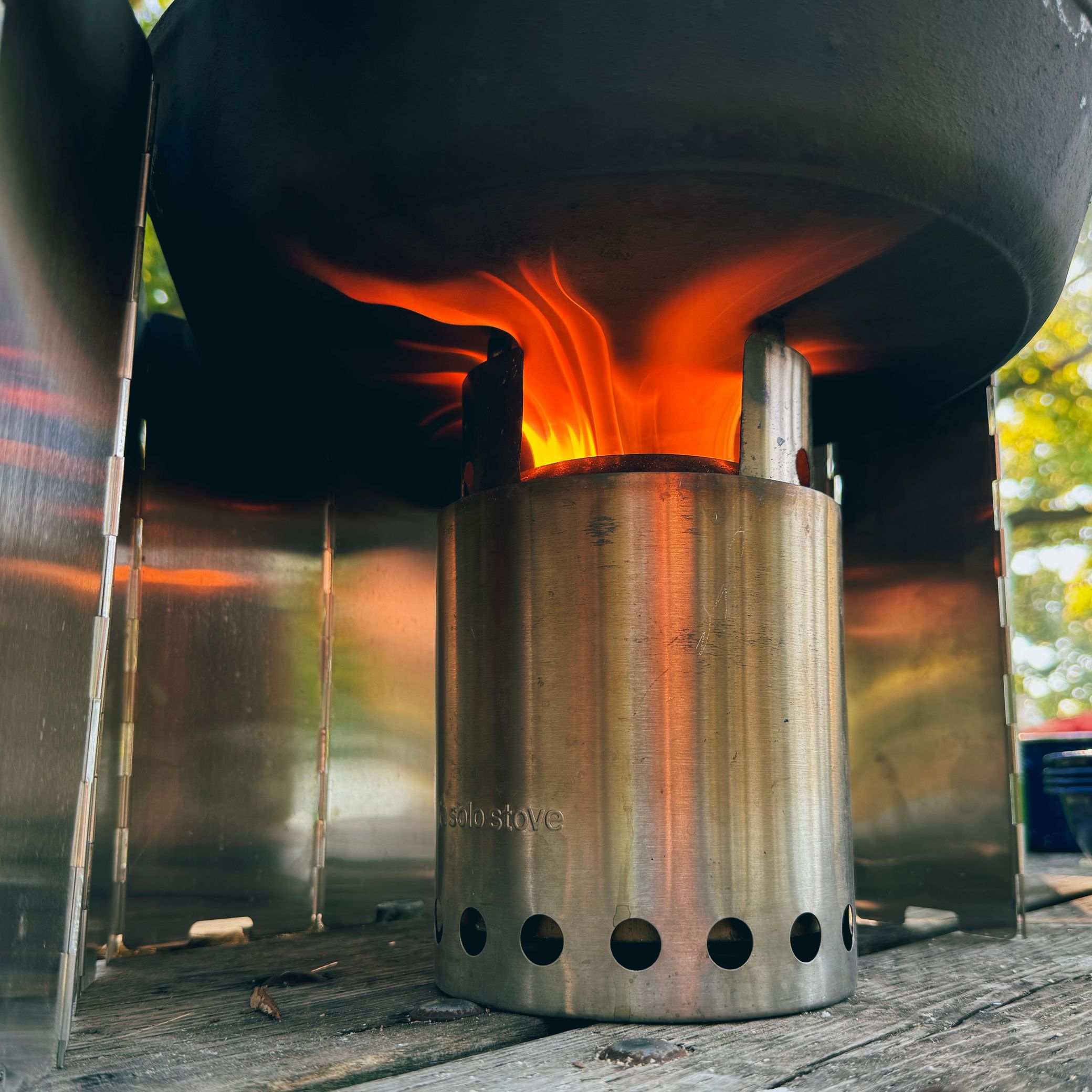
They've got three of these "Camp Stove" type stoves right now. I'm not sure which one I have; I think it's the Titan. They all work the same, just come in different sizes. You cut up some twigs or kindling into thumb-sized pieces, drop them in the chamber, and put a fire starter near the top (not at the very bottom — this is the only counter-intuitive thing you have to do).
You then light up the fire starter, and within a few moments the whole chamber catches. It works by drawing air from the holes in the bottom (convection, no fans). Then it heats up, and at a certain point it "goes critical" (my term, not theirs): Gasification starts.
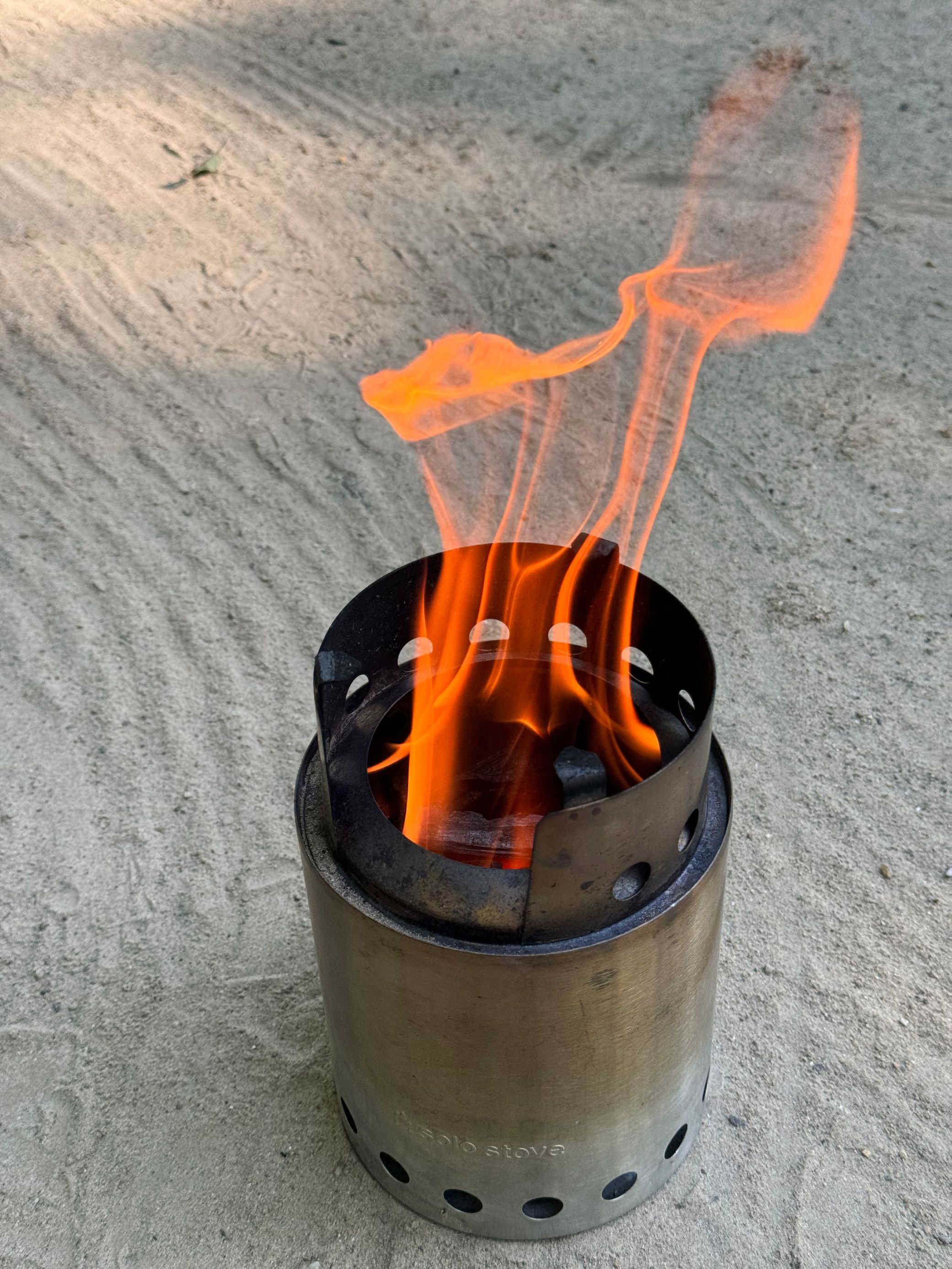
The stove has double walls, and there are holes along top of the inner wall. Suddenly, flames start shooting out of these holes. This is quite a fun experience for the first time: It's a big fire, it's clean, and it doesn't come directly from the twigs you lit up. Magic!
It's a small unit but it gets hot enough to cook dinner for four people. You don't need a lot of wood, either: Just a dead stick or a couple of pieces of kindling is all it takes. You do need to cut those up into small pieces, which is where a folding saw comes in handy. But to me, this is much better than having to go to the store and get gas canisters for a traditional camping stove. It's liberating to feel like I have so much fuel, especially when cooking one meal requires very little mass.
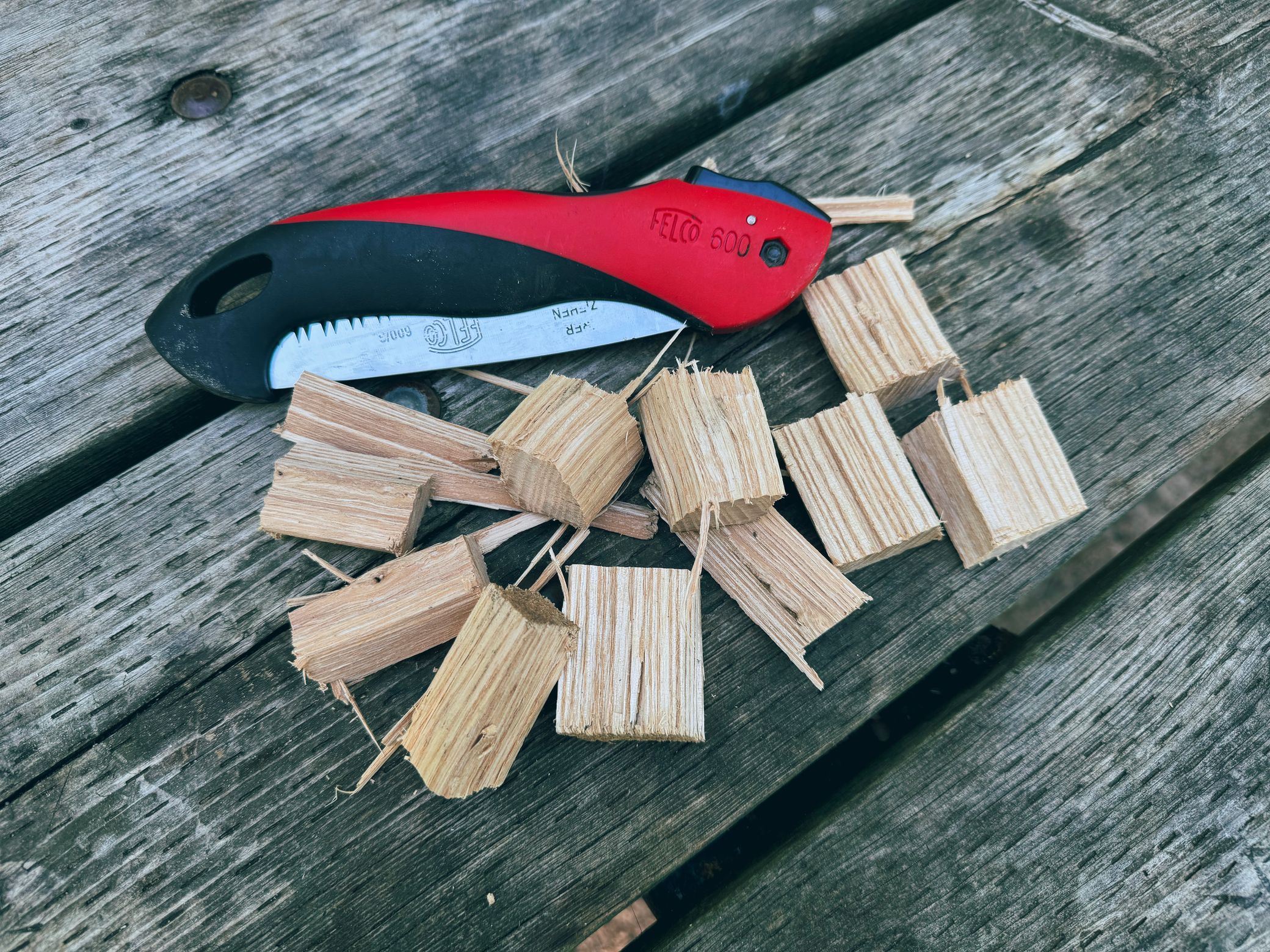
That said, if there's a fire ban where you're camping, it might apply to twig-burning stoves, too. So we do always pack a gas-burning stove as a backup, but we don't usually have to use it.
If you're cooking something that requires a lot of heat, you may have to add some twigs in the middle. This doesn't require removing the pan or pot: You can just pop twigs in through the side while it's burning.
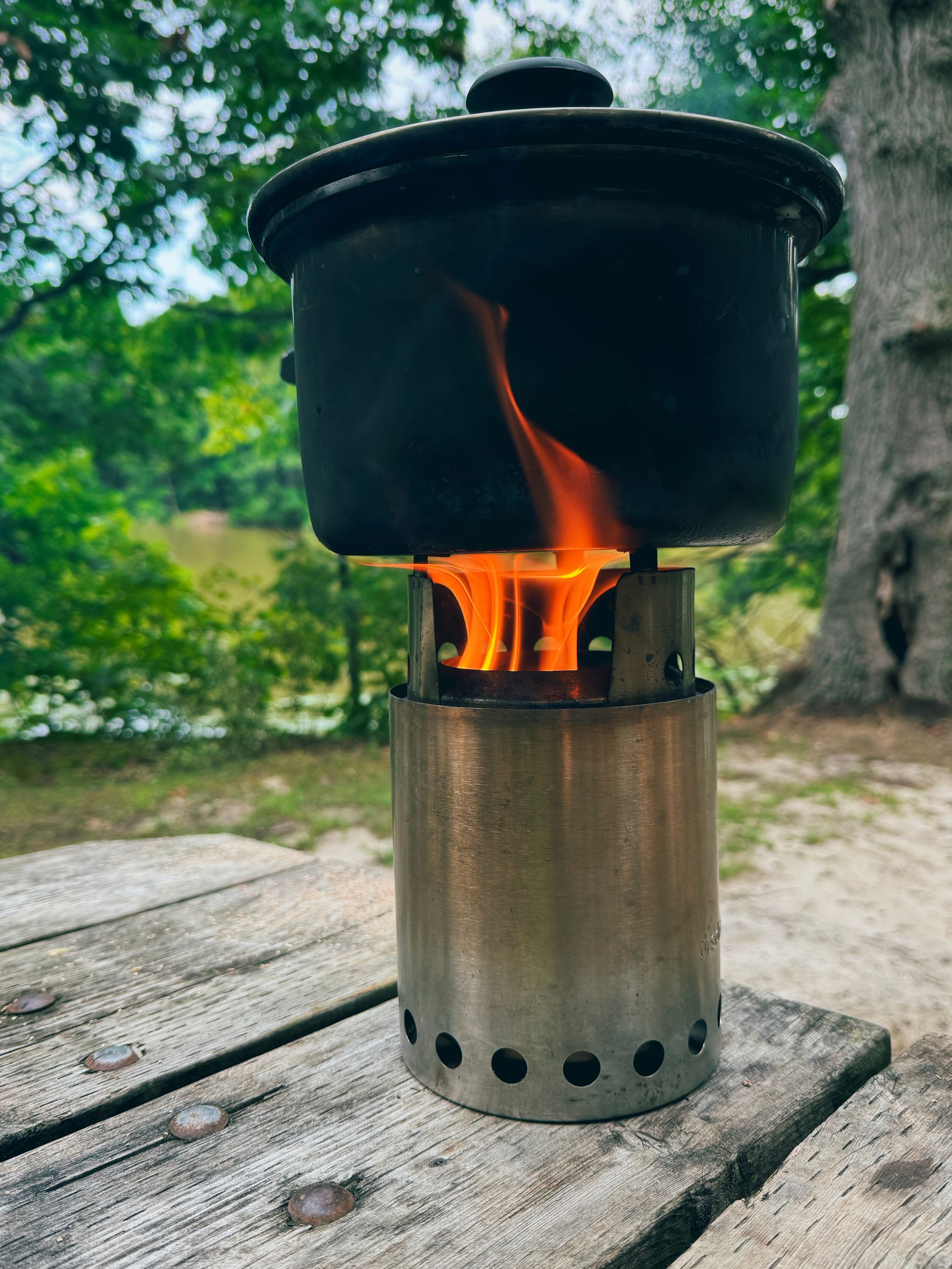
Even if the fire seems to die down, if you catch it early enough when there's still a lot of heat in the chamber, you can throw in a couple of twigs and it'll start right back up on its own, no firestarter or lighter needed. It burns quick, so it's worth keeping an eye on it while you're cooking.
It's a sturdy little unit. We're able to place a full-size 12" cast iron skillet on it and cook. It does create a hot spot in the middle of the skillet so you have to move food around, and you do need to keep an eye on the skillet so it doesn't topple over. But it works, and the weight of the pan isn't close to deforming the stove in any way.
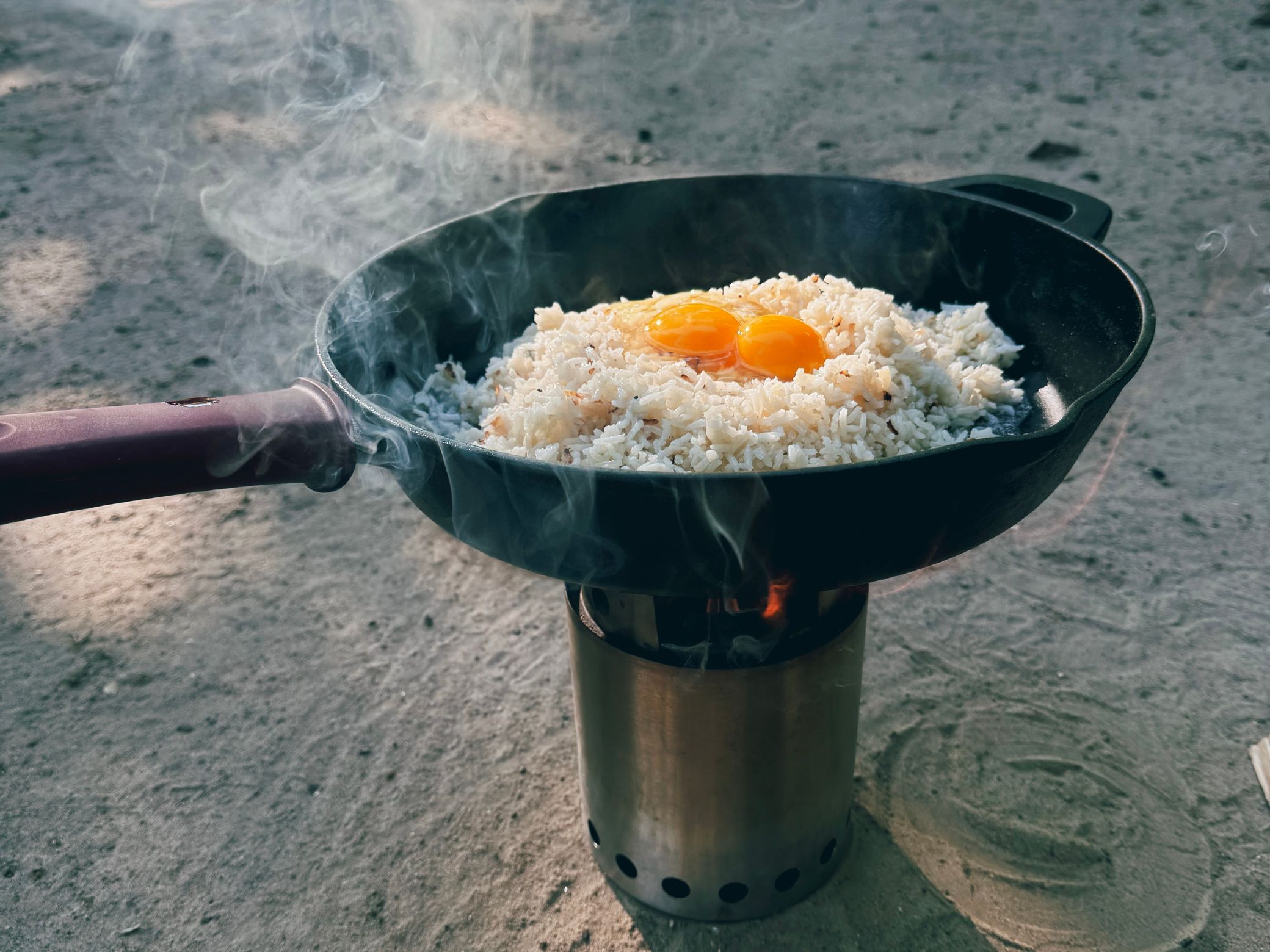
To my surprise, I'm able to place the Solo Stove directly on a wooden camping table (one of those big picnic tables) and it doesn't leave a mark even after thirty minutes of full burn. I think that's because it has a double bottom (the twigs lie on a grate, and air comes in from under the twigs).
I do use one aftermarket accessory for it, which is this segmented windscreen you can see in the "Whoosh" image above. They also sell their own, but I think I got mine elsewhere. I don't use it every time, but when it's a little windy, it does help keep the flame steady.
It burns very efficiently. At the end of the burn there's just a bit of ash at the bottom, and that's about it. I usually grab the stove with a pair of tongs and just flip it over the main firepit of the campsite to dump out the ashes. I then set it on the ground, and within moments it's cool enough to touch with my bare hands so I can put it away for next time.

If you're thinking of getting a Solo stove, two notes to keep in mind:
One is that this kind of stove is called a "gasifier" or a "gasification stove". If you're handy, you can make one yourself with a couple of nesting metal containers and a drill. There are plans online, and even formulas that let you figure out hole placement for any size container you may have. I have a friend who got quite into this and ended up making a few of these in different sizes. They all burn just as well as the commercial one and they cost a fraction of what mine did.
The other thing to keep in mind is that you should wait for their coupons or Black Friday deals. As I said at the outset, this product is heavily marketed, with all of the annoyances that come with that. I got mine at full price and then they ran a massive discount just a few weeks later. If there isn't a crazy deal right now, I'd wait.
The surprise
Two main surprises, for me: One was that it does indeed work. The marketing is aggressive but not exaggerated — you get a big flame with little smoke. It's our main cooking stove for car camping and it delivers everything I'd want out of something like this.
The other surprise is that you don't have to be massively outdoorsy to use it. It really is simple to start, and it requires no maintenance or special consumables. A one-time purchase that keeps working.


